Natural disasters are unpredictable events that can have devastating consequences for communities around the world. Earthquakes, hurricanes, floods, and wildfires can strike suddenly, destroying homes, infrastructure, and livelihoods in their path.
In the aftermath of these catastrophes, affected populations often face numerous challenges, from accessing basic necessities like food and clean water to rebuilding their homes and communities.
This is where disaster relief charities step in, playing a crucial role in both immediate response and long-term recovery efforts. These organizations mobilize quickly to provide essential aid and support to those affected by natural disasters, helping communities get back on their feet and rebuild their lives.
In this post, we’ll explore some of the most effective and well-regarded disaster relief charities operating today. We’ll delve into their missions, examine their histories, and highlight the significant impact they’ve made in disaster-stricken areas around the globe.
These organizations vary in size, focus, and approach, but they all share a common goal: to alleviate suffering and provide hope in the wake of natural disasters.
From international giants with a global reach to smaller, specialized groups focusing on specific regions or types of disasters, each plays a vital part in the broader landscape of disaster relief.
Disaster Relief Charities
American Red Cross
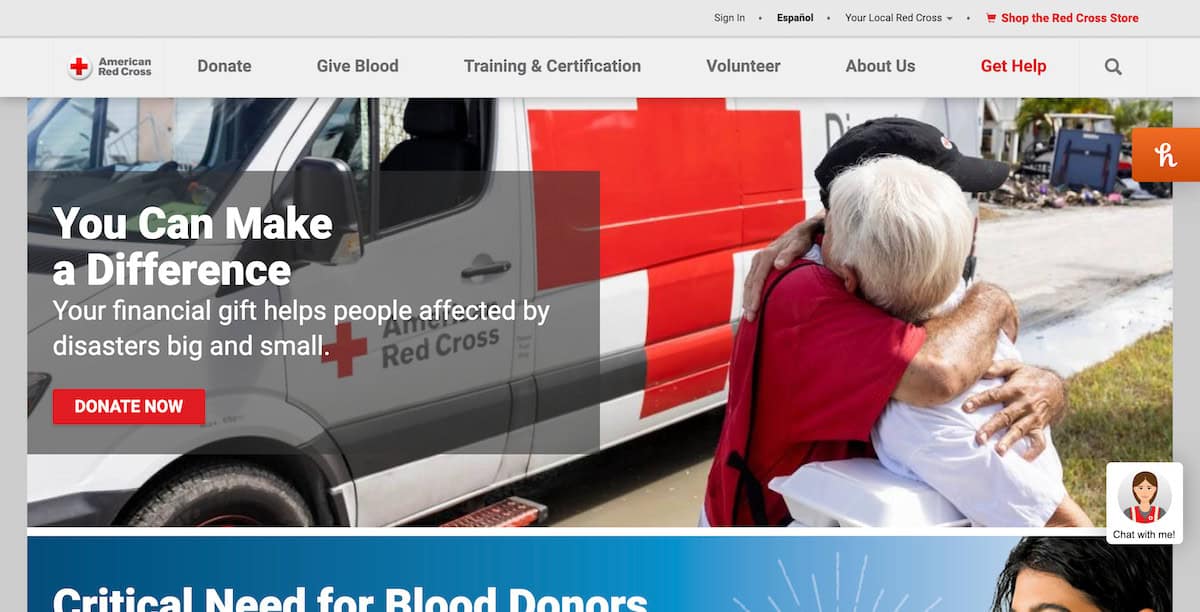
The American Red Cross is synonymous with disaster relief, providing emergency assistance, disaster preparedness education, and recovery support. Known for its rapid response to crises, this organization offers a lifeline to those in desperate need.
Mission: To prevent and alleviate human suffering in the face of emergencies by mobilizing the power of volunteers and the generosity of donors.
History: Founded in 1881 by Clara Barton, the American Red Cross has been at the forefront of disaster response in the United States and worldwide.
Impact:
- Provides emergency shelter, food, and health services.
- Offers disaster preparedness education.
- Supports long-term recovery and rebuilding efforts.
Direct Relief
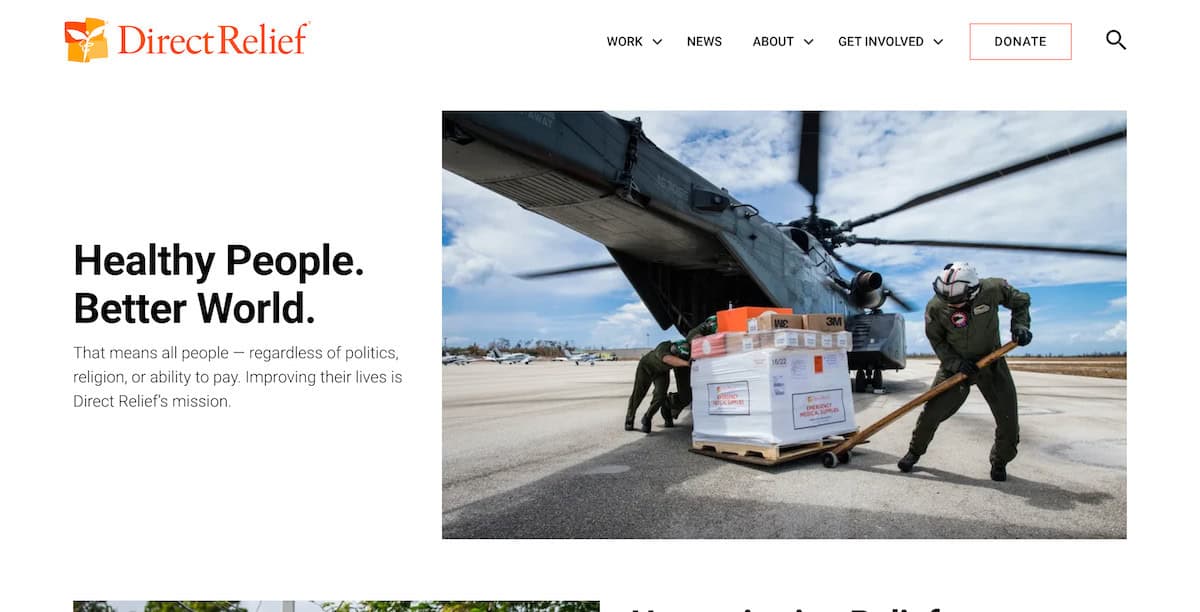
Direct Relief is a humanitarian aid organization focused on improving the health and lives of people affected by poverty and emergencies. They provide essential medical resources to communities in need, ensuring that disaster-stricken areas receive the care they require.
Mission: To improve the health and lives of people affected by poverty and emergencies without regard to politics, religion, or ability to pay.
History: Established in 1948, Direct Relief has grown to become a global leader in providing medical aid during disasters.
Impact:
- Delivers medical supplies and equipment to disaster zones.
- Supports healthcare infrastructure in affected areas.
- Provides ongoing health services to underserved communities.
GlobalGiving
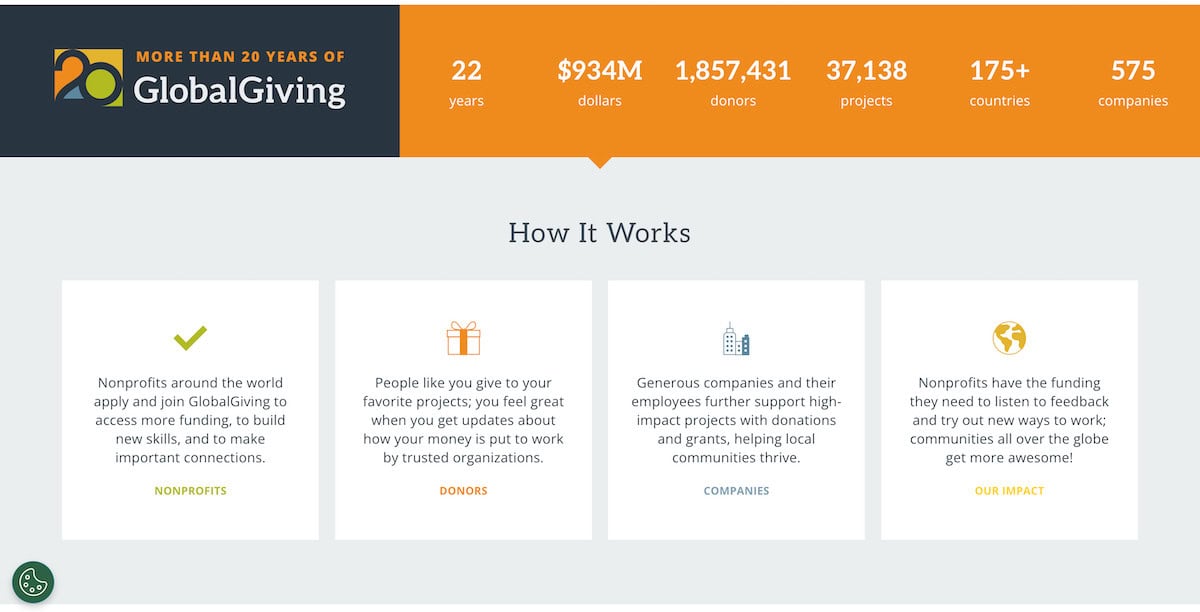
GlobalGiving connects donors with grassroots projects around the world, including those focused on disaster relief. This platform allows donors to support local organizations directly, ensuring that aid reaches those who need it most.
Mission: To transform aid and philanthropy to accelerate community-led change.
History: Founded in 2002, GlobalGiving has facilitated billions of dollars in donations to thousands of projects worldwide.
Impact:
- Funds grassroots disaster relief projects.
- Supports community-led recovery efforts.
- Provides a transparent platform for donors to track their impact.
World Central Kitchen
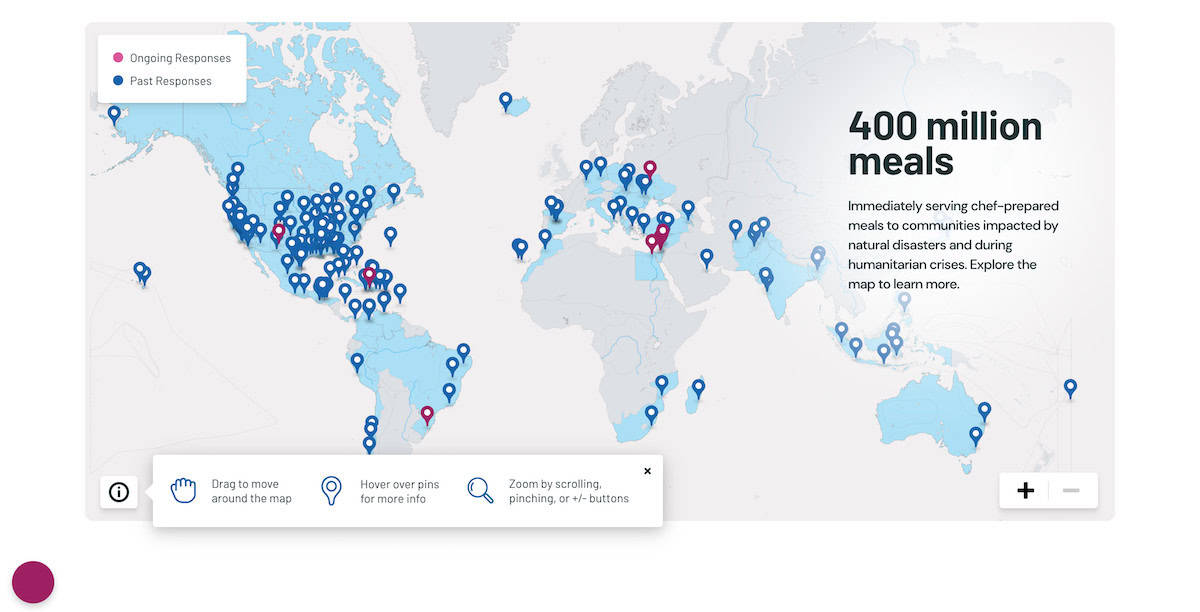
Founded by celebrity chef José Andrés, World Central Kitchen uses the power of food to nourish communities and strengthen economies in times of crisis and beyond. They provide meals to disaster survivors and support local food systems.
Mission: To use the power of food to empower communities and strengthen economies.
History: Since its inception in 2010, World Central Kitchen has provided millions of meals in the wake of disasters.
Impact:
- Provides nutritious meals to disaster survivors.
- Supports local food systems and businesses.
- Trains communities in culinary skills and disaster preparedness.
Team Rubicon
![]()
Team Rubicon leverages the skills and experiences of military veterans to rapidly deploy emergency response teams. Their unique approach ensures efficient and effective disaster response and recovery.
Mission: To provide relief to those affected by disaster, using the skills and experiences of military veterans with first responders to rapidly deploy emergency response teams.
History: Founded in 2010, Team Rubicon has deployed thousands of veteran volunteers to disaster sites across the globe.
Impact:
- Conducts search and rescue operations.
- Provides medical assistance and disaster recovery services.
- Supports long-term rebuilding efforts.
Mercy Corps
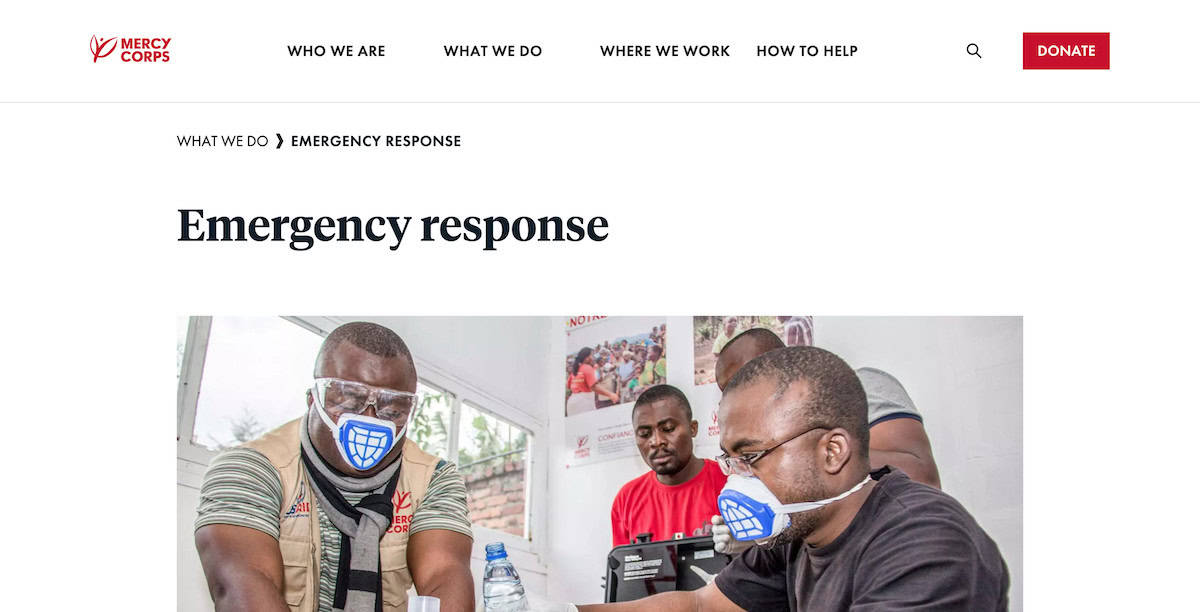
Mercy Corps is a global humanitarian organization that helps people in the world’s toughest places survive the crises they confront and turn them into opportunities for progress. Their comprehensive approach addresses immediate needs and supports long-term recovery.
Mission: To alleviate suffering, poverty, and oppression by helping people build secure, productive, and just communities.
History: Since 1979, Mercy Corps has worked in over 40 countries, helping millions recover from disasters.
Impact:
- Provides emergency food, water, and shelter.
- Supports economic recovery and infrastructure rebuilding.
- Empowers communities through education and development programs.
International Medical Corps
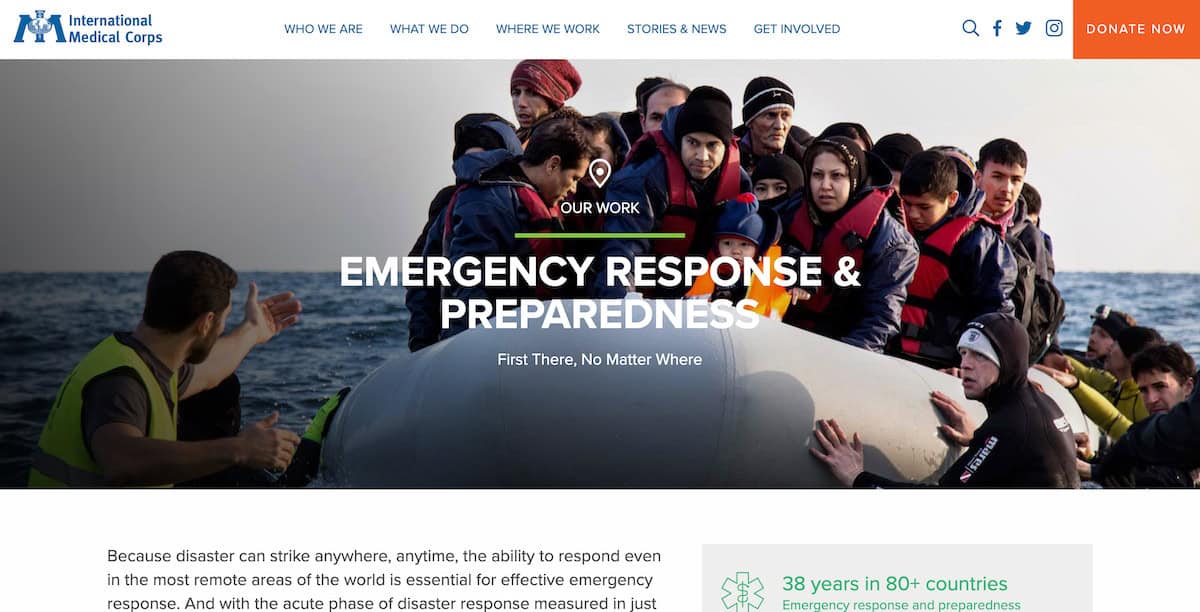
International Medical Corps provides emergency medical services and healthcare training to those affected by disaster and conflict. Their efforts help build resilient health systems and communities.
Mission: To improve the quality of life through health interventions and related activities that build local capacity in underserved communities worldwide.
History: Established in 1984, International Medical Corps has responded to crises in over 70 countries.
Impact:
- Delivers emergency medical care and supplies.
- Trains local healthcare workers and strengthens health systems.
- Provides mental health and psychosocial support.
Get our checklist of the best free nonprofit tools of 2024 sent directly to your inbox
Samaritan’s Purse
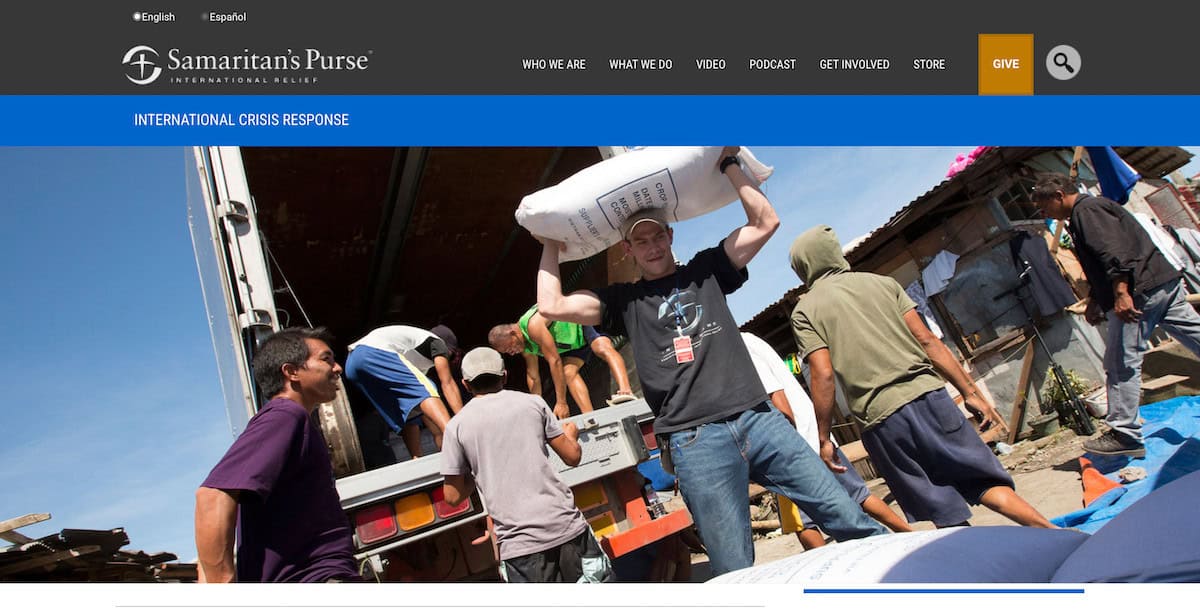
Samaritan’s Purse provides spiritual and physical aid to victims of war, poverty, natural disasters, disease, and famine. They are known for their rapid deployment of disaster response teams and long-term rebuilding projects.
Mission: To follow the example of Christ by helping those in need and proclaiming the hope of the Gospel.
History: Founded in 1970 by Franklin Graham, Samaritan’s Purse has grown into a global leader in disaster relief.
Impact:
- Provides emergency shelter, food, and medical care.
- Rebuilds homes and infrastructure.
- Offers spiritual support and community services.
Save the Children
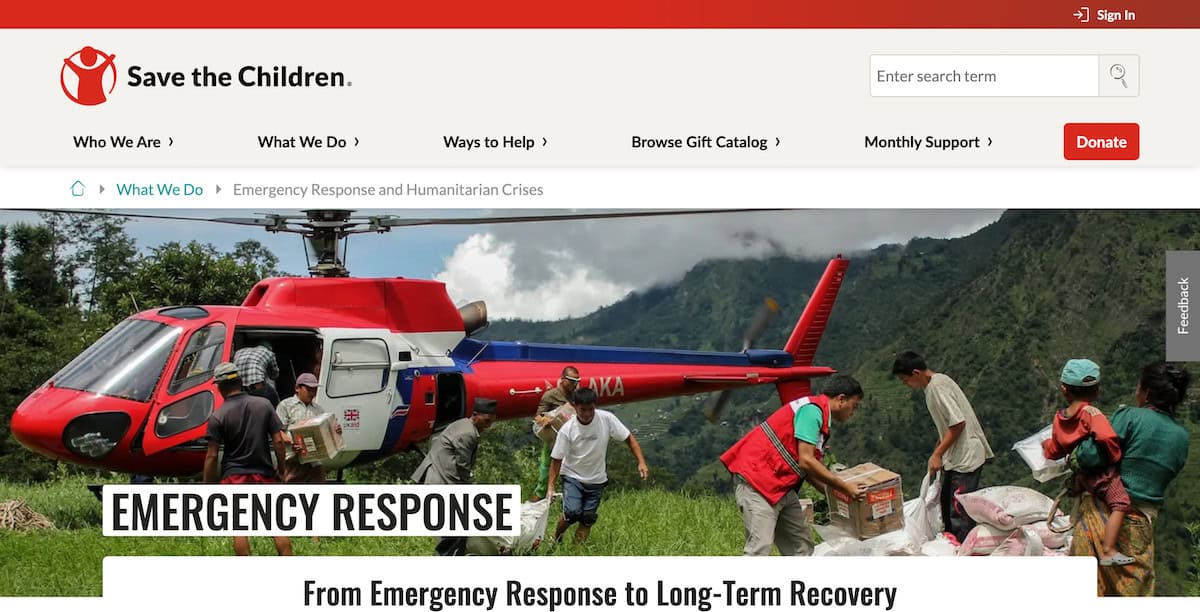
Save the Children focuses on the unique needs of children during and after disasters. Their programs ensure that children are protected, healthy, and able to continue their education despite crises.
Mission: To inspire breakthroughs in the way the world treats children and to achieve immediate and lasting change in their lives.
History: Established in 1919, Save the Children has been a leading advocate for children’s rights and welfare.
Impact:
- Provides emergency nutrition, shelter, and healthcare for children.
- Ensures continuity of education during crises.
- Advocates for child protection and rights.
Habitat for Humanity
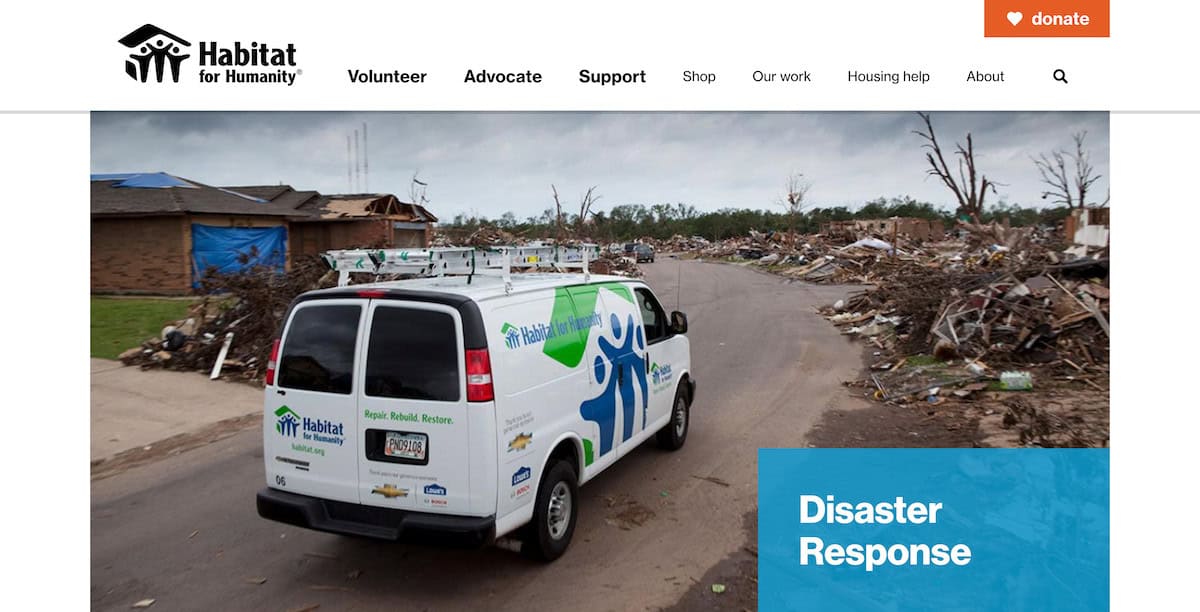
Habitat for Humanity helps rebuild homes and communities after disasters, providing safe and affordable housing for those affected. Their efforts focus on long-term recovery and resilience.
Mission: To bring people together to build homes, communities, and hope.
History: Since 1976, Habitat for Humanity has built and repaired over 1 million homes worldwide.
Impact:
- Rebuilds homes and infrastructure in disaster-affected areas.
- Provides training and resources for disaster preparedness.
- Supports community resilience and development.
CARE
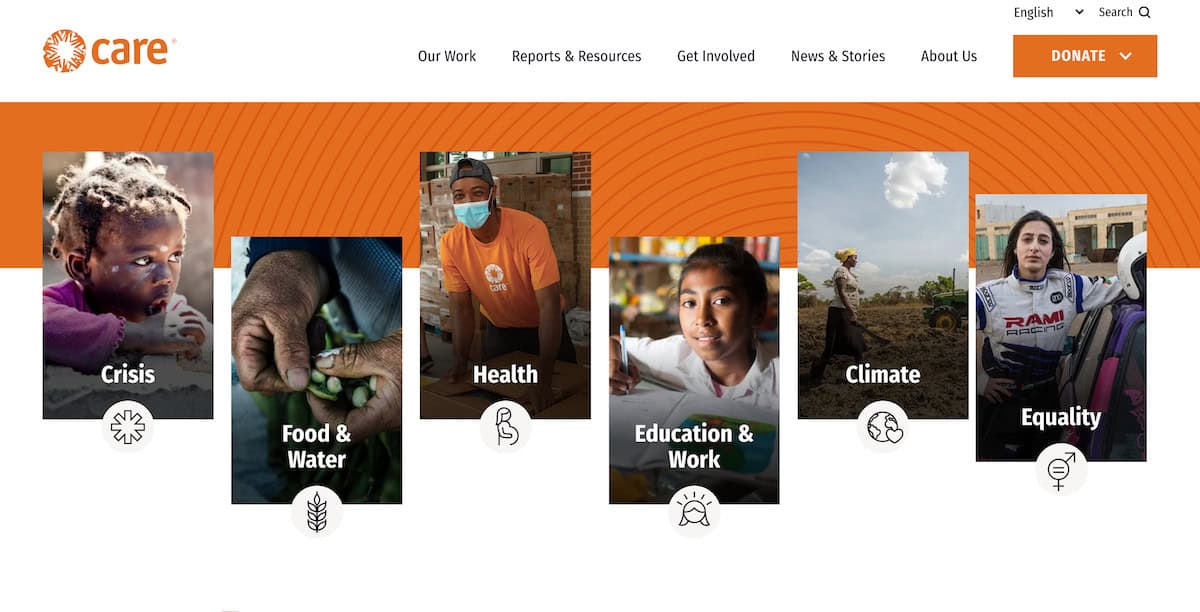
CARE works around the globe to save lives, defeat poverty, and achieve social justice. Their disaster relief efforts provide immediate aid and support long-term recovery and resilience building.
Mission: To save lives, defeat poverty, and achieve social justice.
History: Founded in 1945, CARE has grown into a global humanitarian organization with a presence in over 100 countries.
Impact:
- Delivers emergency food, water, and shelter.
- Supports economic recovery and development.
- Advocates for gender equality and social justice.
Doctors Without Borders (Médecins Sans Frontières)
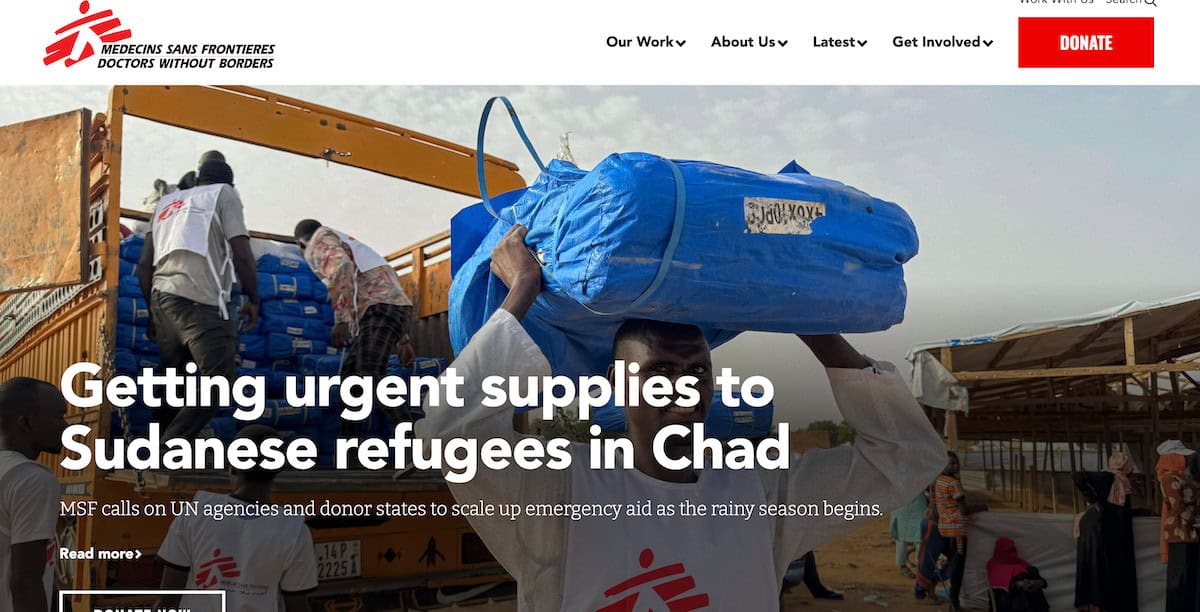
Doctors Without Borders provides emergency medical care to people affected by conflict, epidemics, disasters, or exclusion from healthcare. Their teams respond swiftly to crises, providing life-saving services.
Mission: To provide lifesaving medical care to those most in need, regardless of their race, religion, or political affiliation.
History: Founded in 1971, Doctors Without Borders has provided medical care in over 70 countries.
Impact:
- Delivers emergency medical services and supplies.
- Responds to epidemics and public health crises.
- Advocates for access to healthcare and human rights.
ShelterBox
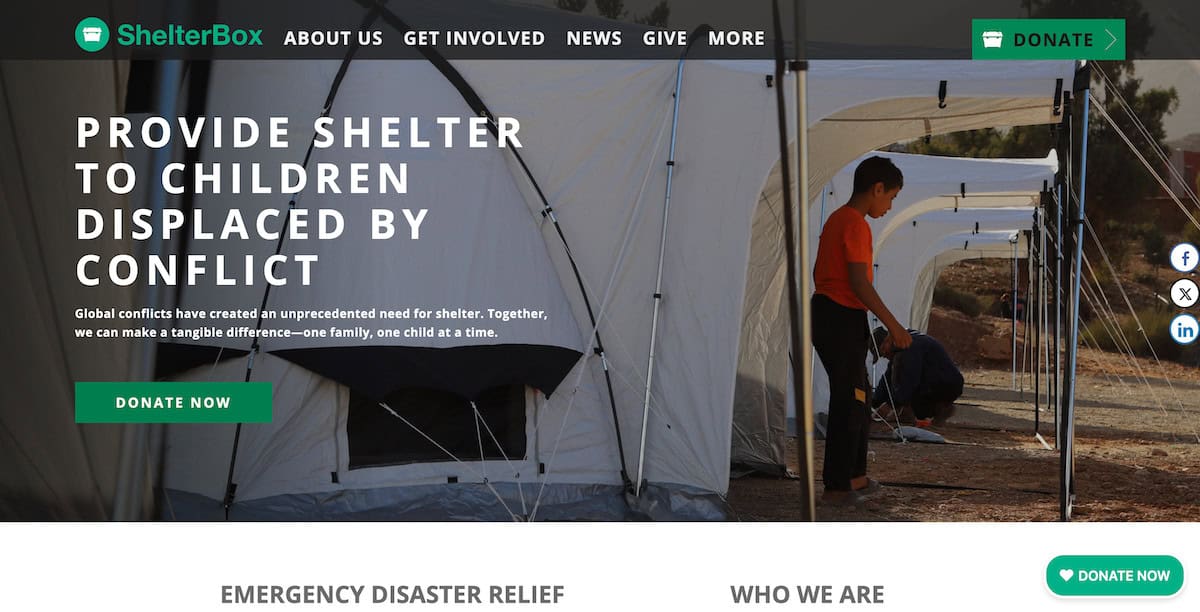
ShelterBox provides emergency shelter and tools for families robbed of their homes by disaster. Their innovative shelter solutions help restore dignity and security to those in need.
Mission: To provide emergency shelter and tools for families robbed of their homes by disaster to enable them to rebuild their lives.
History: Since 2000, ShelterBox has provided aid to over 1.5 million people worldwide.
Impact:
- Delivers shelter kits and essential supplies.
- Supports community resilience and recovery.
- Partners with local organizations for effective response.
Convoy of Hope
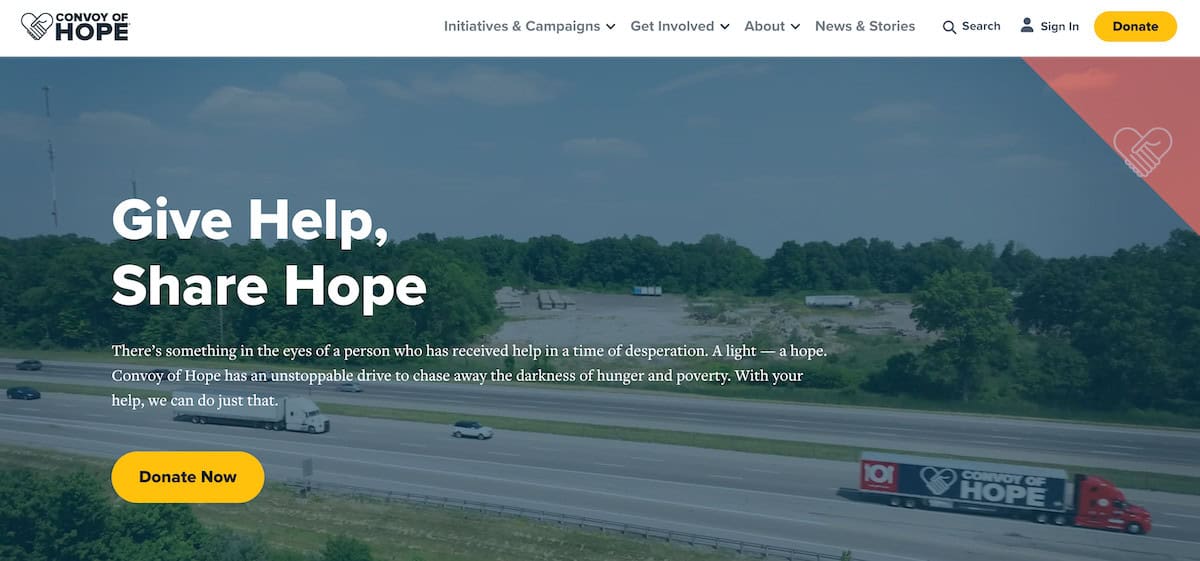
Convoy of Hope is a faith-based organization that provides food, supplies, and humanitarian services to those in need during disasters. Their rapid response teams bring critical relief to affected communities.
Mission: To feed the world through children’s feeding initiatives, community outreaches, and disaster response.
History: Since 1994, Convoy of Hope has served millions of people in the United States and around the world.
Impact:
- Provides emergency food, water, and supplies.
- Supports community development and resilience.
- Conducts outreach programs to support ongoing needs.
Operation USA
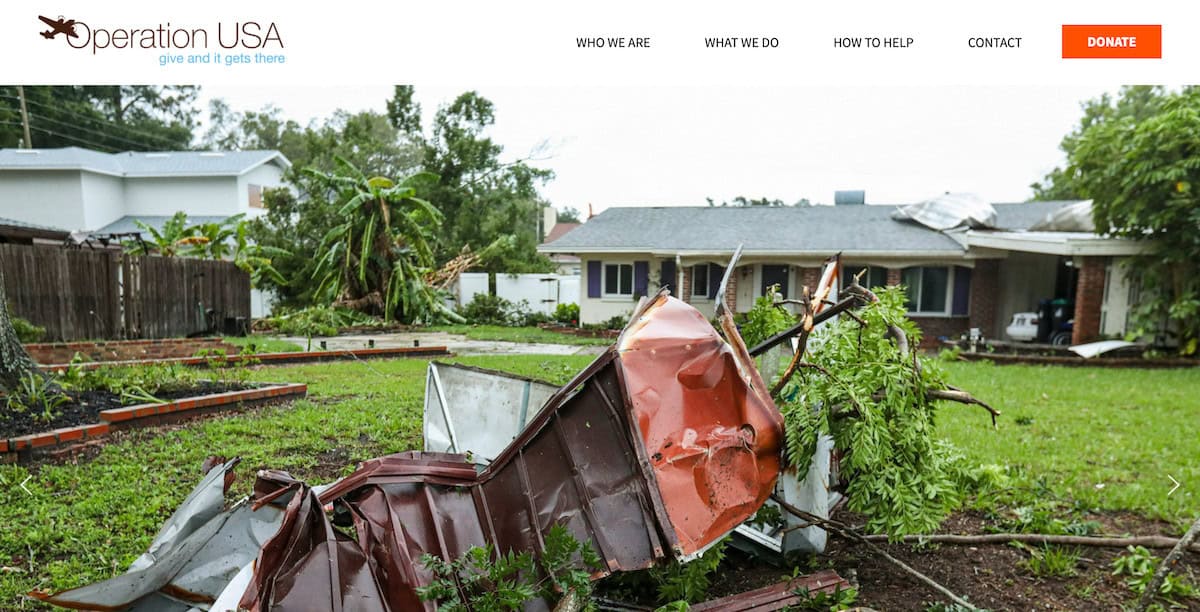
Operation USA provides privately funded relief, reconstruction, and development aid to communities affected by disasters and chronic poverty. Their work focuses on sustainable recovery and long-term resilience.
Mission: To help alleviate the effects of disasters, disease, and endemic poverty throughout the world by providing privately funded relief, reconstruction, and development aid.
History: Founded in 1979, Operation USA has delivered aid to over 100 countries.
Impact:
- Delivers emergency aid and supplies.
- Supports long-term reconstruction and development.
- Partners with local organizations for sustainable impact.
Relief International
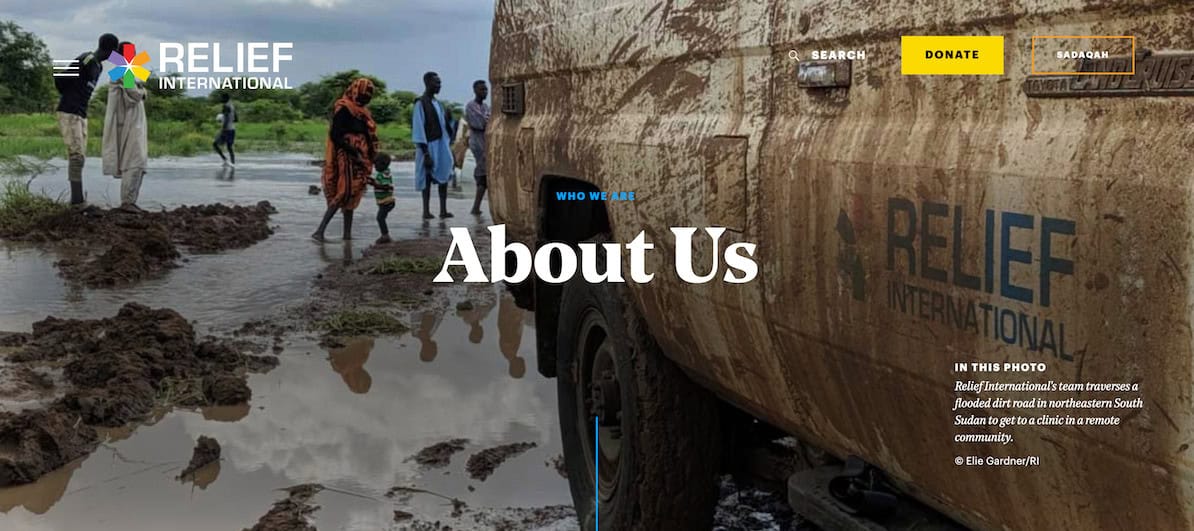
Relief International partners with communities in fragile settings to address their most pressing challenges. Their disaster response efforts focus on providing immediate relief and supporting long-term recovery and development.
Mission: To partner with people in fragile settings to relieve poverty, ensure well-being, and advance dignity.
History: Since 1990, Relief International has been working in some of the world’s most vulnerable communities.
Impact:
- Provides emergency food, water, and medical care.
- Supports education and economic development.
- Advocates for human rights and social justice.




